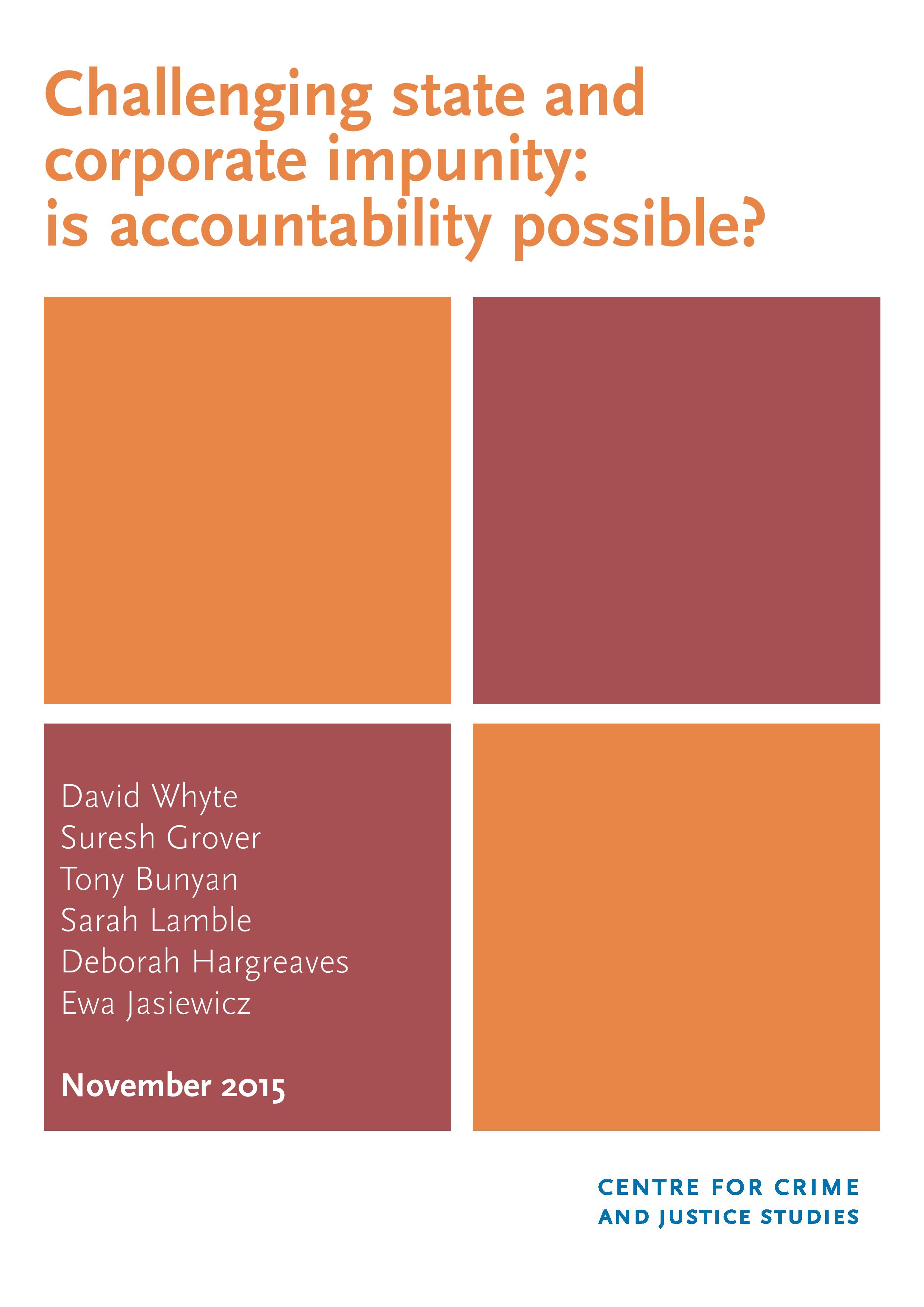On 19 June 2015, the Centre for Crime and Justice Studies and the Department of Sociology, Social Policy and Criminology at the University of Liverpool co-hosted the conference Challenging state and corporate impunity: Is accountability possible?
This publication presents edited transcripts of the speeches given to the conference. Each contribution has been edited for fluency, so some asides and digressions have been omitted.
This was the third in the series of conferences, following the successful How Corrupt is Britain? (2013) and How Violent is Britain? (2014) conferences. It brought people together from a range of organisations to discuss how to hold state and corporate institutions to account. The conference debated notions of accountability, in an era where surveillance and a concentration of power within the hands of elites render such concepts problematic.
Neo-liberal policies and practices are disintegrating the liberal democratic forms of state and corporate accountability that exist in the UK system of government. The gap between the formal checks and balances and the ability to achieve real accountability is widening. To this end, the conference discussed at length the difficulty in holding state and corporate institutions to account for abuses of power and the social harm they cause, and provided a space to think strategically about how academics and activists can work together to challenge state and corporate power.
- David Whyte introduces this collection and reflects on the lessons of the previous two conferences. Suresh Grover discusses how the police can be made accountable in the context of institutional racism.
- Tony Bunyan considers how researchers can lend their efforts in supporting movements towards more comprehensive state accountability.
- Sarah Lamble examines how accountability is restricted by being presented in an individualist context, and suggests how it can be used more effectively when broadened to the community.
- Deborah Hargreaves reflects on how the current neoliberal agenda prevents effective corporate accountability; and how this can be challenged in order to improve social responsibility.
- Finally, Ewa Jasiewicz contemplates the difficulties associated with the use of journalism to aid movements for international accountability.
